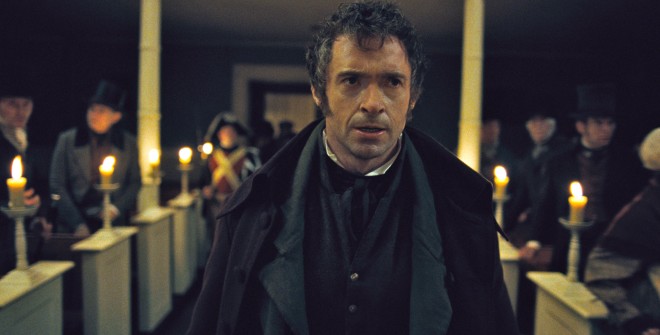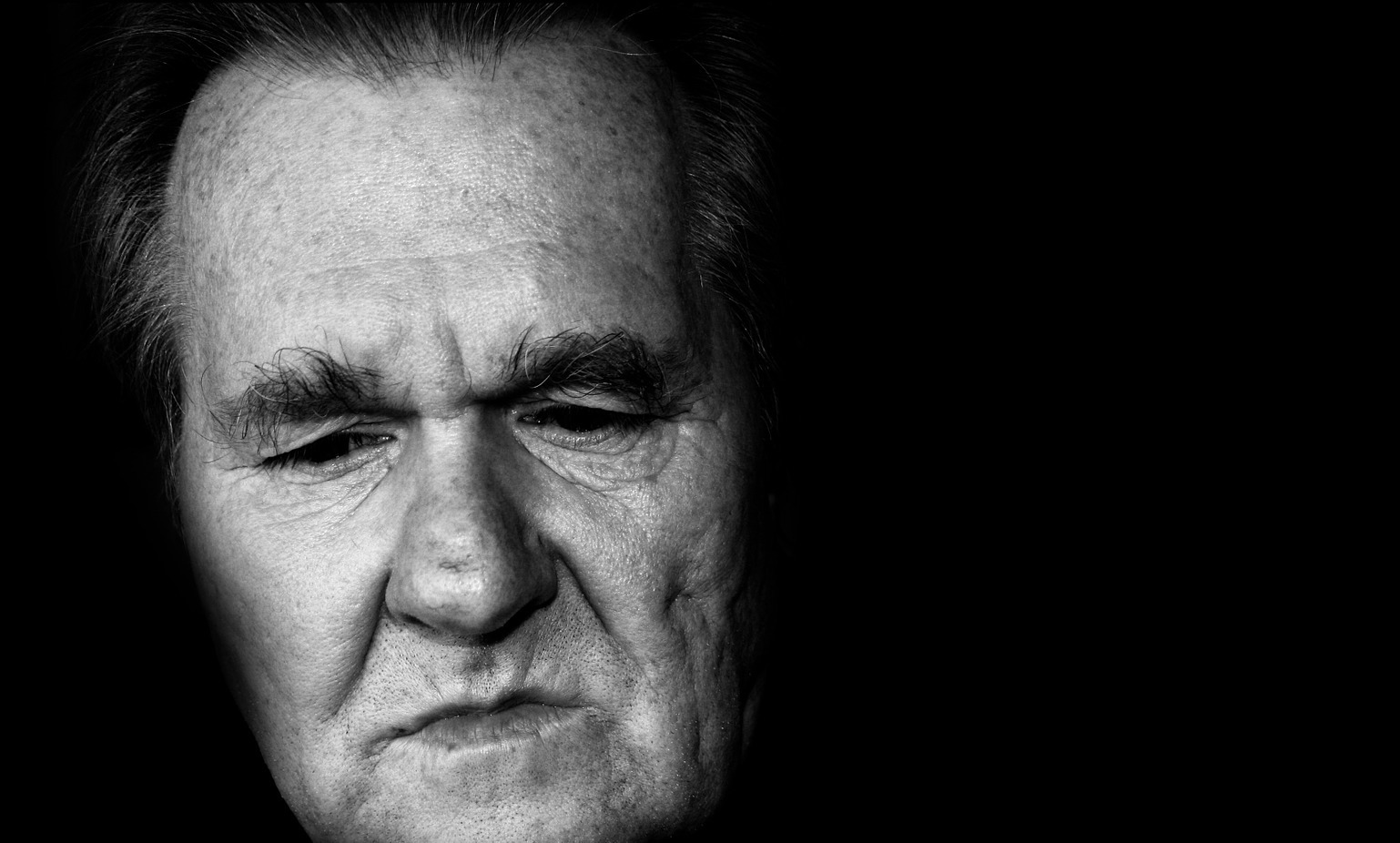A friend told me about a concept that came up in a book called The Road Less Traveled by M. Scott Peck, who looks at psychology and spirituality. The idea is a “dedication to reality at all costs.” The truth is, reality can be painful. Our world offers umpteen ways to escape reality, to suppress it, veil it, or simply deny it. In families and in relationships things go unspoken; they remain hidden until one day they slip out and cause great damage. Why do we try to cover up reality? Because we’re afraid of the suffering it may cost.
 Who am I?
Who am I?
In Les Misérables, Jean Valjean escaped a life of slavery under the law and began anew as a mayor and owner of a factory. He even took on a new name, ridding himself of his former identity. But since Valjean had failed to appear at his mandated parole check-ins Javert, the antagonist policeman, tried to find him so he could arrest him. At one point Javert encountered Valjean in his factory, though since he had a new name and a cleaned up look Javert did not recognise him. In one scene Javert tells Valjean that the con he was looking for had been found and was being put to trial. Valjean, realising that another man was mistaken for him, begins asking one of the hardest questions we can ask ourselves: “Who am I?”
He knows that it is wrong to condemn an innocent man in his place, though he’s come so far in making his life new. He also knows that if he turned himself in he would be condemned and the hundreds of workers who work for him would be abandoned and out of a job. If he stayed silent (keeping his true identity hidden) his soul would be damned. In the end he makes the choice to turn himself in. He runs into the trial and proclaims that he is 24601, his prisoner ID number.
I wondered why Valjean made such a choice. He left hundreds of workers out of a job to save one man from prison. Wouldn’t it be better to sacrifice the freedom of one man, and even potentially Valjean’s soul, in order to maintain the livelihood of his hundreds of workers who would otherwise be on the streets begging and starving? This only makes sense when you see Valjean’s dedication to reality at all costs.
 His song, “Who Am I?” ends with his proclamation that he is Jean Valjean, 24601, not his created identity. Throughout the story he struggles with his past and continuously tries to hide it from himself and his adopted daughter Cosette. Ultimately, he comes to realise that he cannot run away from his story and reality. It has made him who he is. [Listen to the full song here] Jesus lived his life never hiding the reality of himself and of God’s kingdom. Despite the suffering he would endure, the embarrassment the Pharisees might feel, or the pain of the truth that we’re all sinners, Jesus was dedicated to uncovering reality at all costs.
His song, “Who Am I?” ends with his proclamation that he is Jean Valjean, 24601, not his created identity. Throughout the story he struggles with his past and continuously tries to hide it from himself and his adopted daughter Cosette. Ultimately, he comes to realise that he cannot run away from his story and reality. It has made him who he is. [Listen to the full song here] Jesus lived his life never hiding the reality of himself and of God’s kingdom. Despite the suffering he would endure, the embarrassment the Pharisees might feel, or the pain of the truth that we’re all sinners, Jesus was dedicated to uncovering reality at all costs.
“If you continue in my word, you are truly my disciples; and you will know the truth, and the truth will make you free.” (Jesus, John 8:31-32)
Legitimate and Illegitimate Suffering
Being dedicated to reality does cause suffering, but it can be understood as “legitimate suffering”, suffering that needs to happen. It is the cost that comes from the dedication to reality. Why is reality so important in the spiritual life? Because reality is the only truth under God. Falsehoods and masks cover up the beauty, love, reconciliation, and potential healing that can only come from God. Legitimate suffering is the temporary suffering that occurs when truth is uncovered, when a lover uncovers unfaithfulness, when a scandal or addiction is brought into the open, or when past secrets are brought to light.
“Don’t be intimidated. Eventually everything is going to be out in the open, and everyone will know how things really are. So don’t hesitate to go public now. Don’t be bluffed into silence by the threats of bullies. There’s nothing they can do to your soul, your core being. Save your fear for God, who holds your entire life – body and soul – in his hands. What’s the price of a pet canary? Some loose change, right? And God cares what happens to it even more than you do. He pays even greater attention to you, down to the last detail – even numbering the hairs on your head!” (Jesus, The Message, Matthew 10:26-30)
There is also “illegitimate suffering”, which comes as a result of keeping reality hidden. It comes even as you try and avoid suffering. You can be sure that illegitimate suffering in the long run will be much worse than the legitimate suffering that comes from a dedication to uncovering reality here and now, without avoidance. In Les Misérables, Jean Valjean’s secret torments him throughout his life. When he finally acknowledges who he is, you can see a sense of relief and healing begin. Jesus not once experienced illegitimate suffering because he never let himself avoid the reality of pain, of human living, of struggle. You could say he lived into suffering when needed just as much as he lived into the joys of friendships and teaching.
Reality is always less painful than a reality that lives under a bushel basket. And the lesson, which comes from Jean Valjean, is that reality needs to be accepted and uncovered at all costs. Give yourself a long hard look and ask, Who am I? Claim your identity, your story, and your reality. It’s the only place God can enter.
Related posts:
- The Bishop with the Candlesticks (Les Misérables and redemption)
- Grace from Suffering
- Crying Out









Terrific post – thanks so much. Love your site, btw. It is really well done.
I like this reflection. It’s a totally different take than I would’ve seen from this scene myself, and I appreciate the depth with which you tease it out… Very deep. One additional aspect I would add is that for Valjean, the answer to “Who am I?” can also been seen as reclaiming his Christian identity. Who am I? I am Jean Valjean, a man for Christ. And as a Christian, I cannot let even one man unjustly suffer because of my lie. Who am I? Someone who boldly accepts the commandment to do what a relationship with God — in justice — calls him to do. I think he made that decision, yes, because he was dedicated to reality and living according to the truth, but I would say even moreso because he had discerned that God was asking him to do it, even though he was tempted to do otherwise. His answer to “who am I?” can therefore also be seen as a powerful proclamation of the fullness of his Christian identity in doing what the love, mercy, and justice of God requires.
(Also, as a quick aside, would it be worth Valjean to sacrifice his soul for the sake of his factory workers? Never!!!! God would never ask us to do that!)
In short, I am loving your analyses of Les Mis! And I appreciate the way you make such deep Christian themes accessible and relatable. Keep up the good work!
“Really” thought provoking! Thank you.